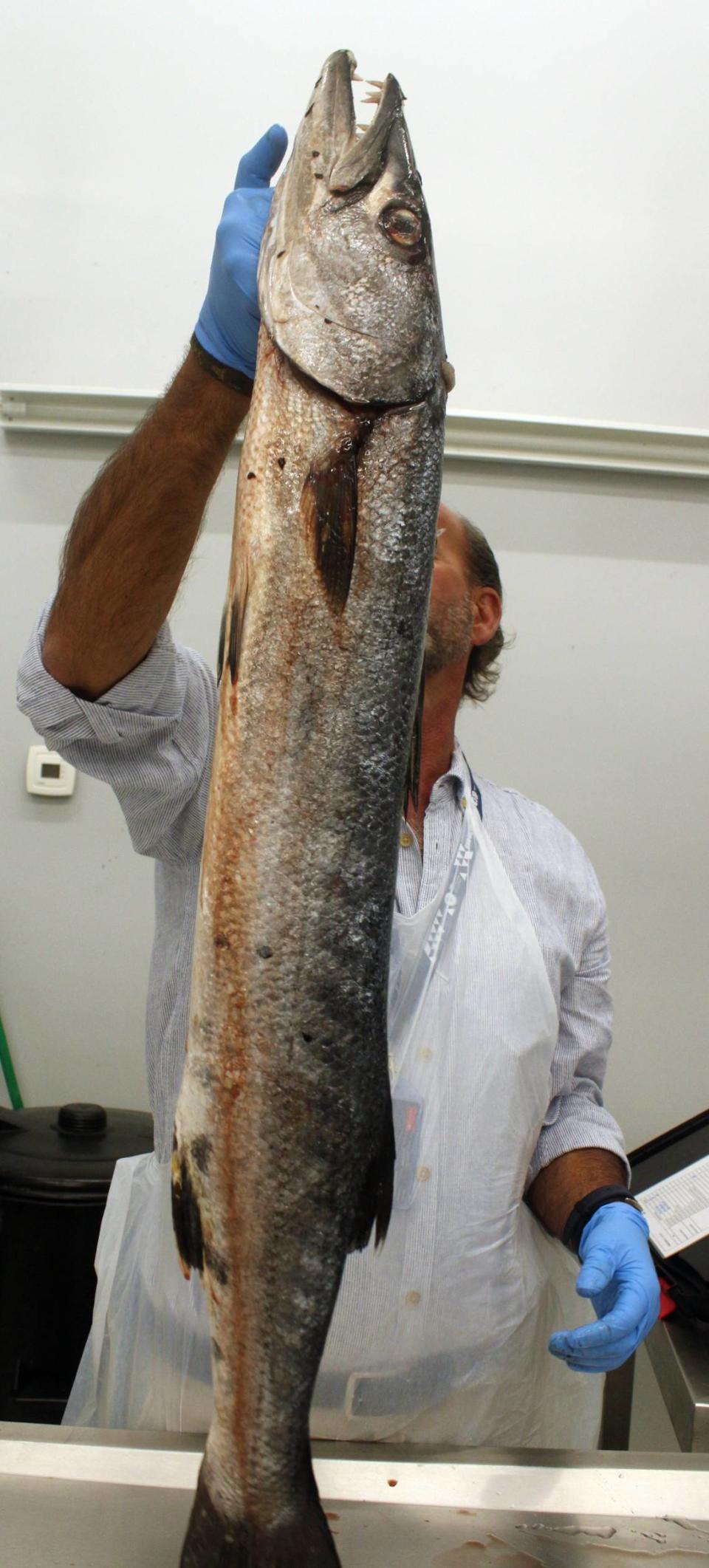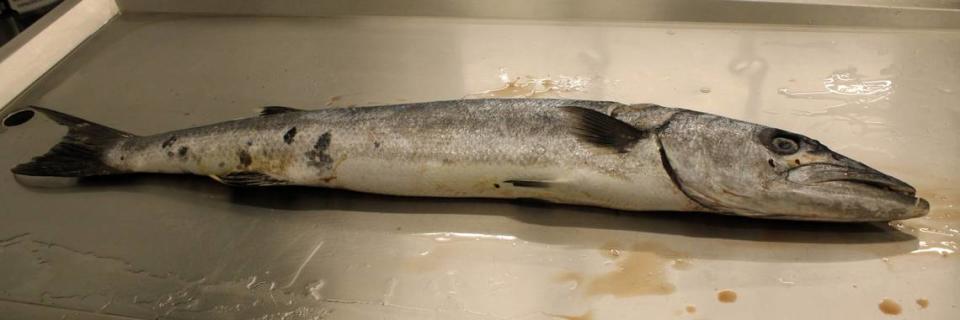Freediving spearfisherman snags ‘unprecedented’ catch in Portugal, scientists say
While freediving off the coast of the Azores islands, a spearfisherman snagged a silvery fish. Immediately, he realized there was something special about the “distinct”-looking fish. It turned out to be an “unprecedented” catch.
Luís Rodrigues was spearfishing off the coast of Terceira Island, a Portuguese island in the Atlantic Ocean, last August when he caught a barracuda, according to a study published Jan. 19 in the Journal of Fish Biology.
Rodrigues was familiar with the yellowmouth barracudas commonly found around the Azores, but this particular barracuda looked different, scientists said.
He contacted scientists, who analyzed the silvery fish, the study said.
Researchers identified the fish as a great barracuda, marking the first known sighting of the species in the Azores.

Photos shared with McClatchy News by Luís Barcelos show the great barracuda. It has prominent teeth and a long, skinny body.
The “unprecedented” catch measured just over 3 feet in length and weighed about 10 pounds, the study said. Researchers said it was still immature.
Great barracudas “can grow to over 5 feet long and over 100 pounds,” according to the Florida Museum. They are “ambush” hunters able to reach “speeds up to 35 mph” in short bursts and are considered dangerous to humans because they “will mistakenly attack shiny objects or fish caught on spears.”

Rodrigues caught the great barracuda while about 30 feet underwater and was diving without a tank, the study said.
The Azores are a Portuguese island archipelago about 1,000 miles west of mainland Portugal.
The research team included Luís Barcelos, João B. Barreiros and João P. Barreiros. Fundo Regional da Ciência e Tecnologia and the Grupo da biodiversidade dos açores at the Center for Ecology, Evolution and Environmental Changes were also involved in the research.
Angler feels ‘thump’ — then reels in fish he’s never seen before. It’s a state record
Rarely seen shark — over 100 years old — washes ashore in Greenland, scientists say
‘Fire’-eyed river creature — with odd way of protecting its eggs — is a new species


